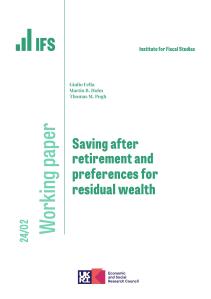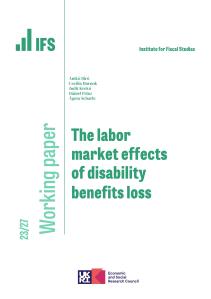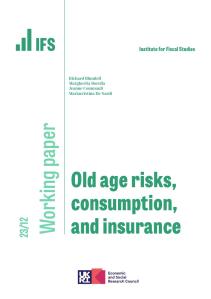Please note: We have produced an Errata to accompany this publication.
An encouraging feature of British policymaking has been its use of evidence. Nowhere is this more important than in policies for older people. At best, getting policies right for older people is a major opportunity for societal flourishing. At worst, not getting policies right for older people will be a drain on society's resources and will lead to marked social inequalities, and a high proportion of the population with economic, social and physical dependency.
The English Longitudinal Study of Ageing (ELSA) was set up with both research and policy as central objectives. With ageing of the population now a global phenomenon, it is of utmost importance to understand the health, well-being and the economic and social circumstances of older people. The longitudinal nature of ELSA provides researchers with increasing opportunities to determine how to put people on trajectories of economically secure older life, with good health, well-being and social engagement. The answers to these research questions will be fundamental to the development of policy.
Participants in ELSA are interviewed every two years. After each wave we produce a report which provides insight into the data collected. The previous report, produced after wave 3, was based on data collected in 2006-07 and examined several themes, including contributing to society through paid work, material well-being, health and quality of life. It highlighted the contribution of respondents' expectations, physical health and pension provision as well as, where relevant, partners' employment status, to ongoing employment in this cohort of over-50-year-olds. It showed that wealth was increasing in the over-50s, largely due to increasing housing wealth (growing house prices) with only small increases in non-housing wealth (financial and physical wealth but not pension wealth). Findings in that report also showed that being single, having a low level of pension provision and being out of the labour force were related to income poverty but that reaching state pension age was not, of itself, a driver of poverty of income. Income poverty is one of the possible consequences of low-level pension provision and being out of the labour force. Lower quality of life is another, since lower quality of life was found among those who were poorer as well as those who lived alone or had poor physical health.









